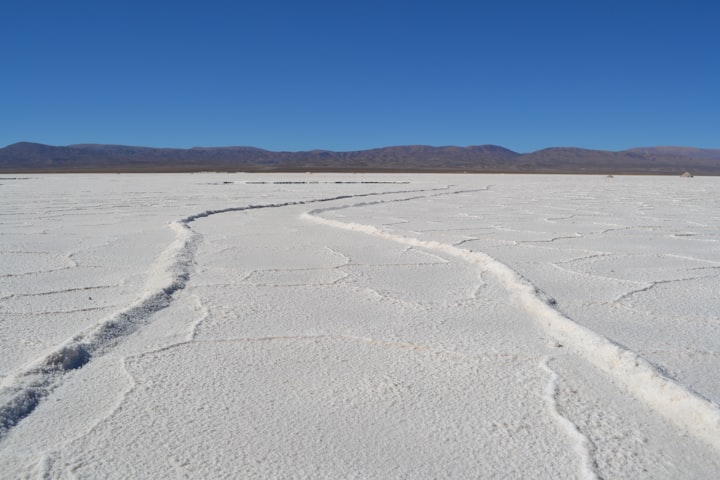The Consequences Of An Imbalanced Electrolyte Distribution In Our Body
What do these electrolytes do? What, even, is an electrolyte?

According to this article, an electrolyte is a substance that can dissociate when dissolved in water and has the ability to conduct an electrical current.
We know that table salt, for instance, is sodium chloride. When we dissolve it in water, it dissociates into positively charged sodium and negatively charged chloride ions, which are able to transport electrons and conduct an electrical current.
It wouldn't be surprising that we do need a constant supply of electrolytes in our diet, because we do have bodily functions that are based on electrical signalling impulses. For example, our muscles use electrical signalling impulses to contract when lifting heavy weights, and then another signalling impulse tells the muscles to relax when we have put the weights down.
What other areas do these electrolytes affect?
For one, dissolved electrolytes contribute to the osmolarity of a solution. A solution containing a large amount of dissolved substances will have a higher osmotic pressure relative to pure water.
The cells in our blood require a constant osmotic pressure in the blood to maintain a proper state of hydration. If the osmotic pressure in the blood were too high, the cell would get dehydrated more easily. Conversely, if the osmotic pressure were too low, the cell could accumulate excess water to the point of bursting.
As it is with the other examples that I have mentioned in The Delicate Balance Of A Steady State To Maintain A Healthy Body, it is also necessary for us to maintain a good balanced electrolyte concentration in our blood.
In the example of the muscle activity that I mentioned earlier, our muscles do need to know when to contract and when to relax properly. Our heart is a muscle that pumps blood through our body via periodic contractions and relaxations, which forms the "heartbeat" that doctors can listen to on their stethoscopes.
The electrical impulses sent to each individual muscle in our body for contraction are dependent on a calcium signalling process, while magnesium is responsible for signalling a relaxation. One common use of magnesium products comes in the form of Epsom salts (magnesium sulphate), which is a commonly used laxative. When consumed in adequate doses, it can relax our anal muscles, which then results in us emptying our bowels extremely easily. That is also why some people also do take baths with Epsom salts - it is a very calming and relaxing thing to do with a magnesium product.
As calcium and magnesium work in tandem, we'd have to take note that they have to be consumed in proportionate amounts in our diet as well. If we were to consume too little magnesium in comparison to calcium, we'd be at a risk of developing cramps more easily, for instance, especially when cramps are related to a sudden and involuntary contraction of our muscles!
How does dehydration affect our electrolyte balances?
We all know that our sweat contains dissolved salts - it does taste salty indeed.
If we are perspiring a fair bit from strenuous activities, we tend to lose a fair bit of water and electrolytes in that sweat. If we don't rehydrate with sufficient fluids and electrolytes, there would be a few consequences.
1. The loss of fluids and electrolytes would change up the osmotic pressure of the blood that is in our body, and that would affect our well our cells can function.
2. Dehydration can cause changes to the viscosity of our blood, which affects how well it flows as it is pumped about in our body. A higher viscosity would translate to a poorer transportation rate, and as such, the transport of essential nutrients such as oxygen through the body would be affected. With insufficient oxygen getting to our brain cells, one of the symptoms that we can observe would be lightheadedness or dizziness.
3. When we lose too much of these electrolytes without proper replenishment, there is a possibility that the body would, in due time, lack the sufficient electrolytes for properly contracting or relaxing our muscles. Even the most seasoned of professional athletes can end up experiencing severe muscle cramps with prolonged overtime games, and it is not so much an issue with fitness or conditioning as it with an insufficiency of the electrolytes that are necessary to properly contract or relax the muscles.
Other contributors to a dehydration issue would be the presence of excess sugar in the blood, as it is in the case of Type 2 diabetes.
The dissolved sugar in the blood does contribute to the osmotic pressure imbalance in addition to the other issues that I have explored in The Problem With Excess Sugar Consumption In Our Lives and The Unmentioned Implications Of Excess Sugar In Our Blood.
A diabetic would have a higher than usual blood viscosity because of the additional sugar that is dissolved in the blood, and we have already shown that it can pose issues with cell function and cognitive behaviour.
We do need to take care of the electrolyte balances in our body properly, don't we? Whether we're physically active or we have a health problem - getting the cells in our body to function as good as they can is something that is always absolutely necessary!
Joel Yong, PhD, is a biochemical engineer/scientist, an educator, and a writer. He has authored 1 ebook (which is available on Amazon.com in Kindle format) and co-authored 6 journal articles in internationally peer-reviewed scientific journals. His main focus is on finding out the fundamentals of biochemical mechanisms in the body that the doctors don’t educate the lay people about, and will then proceed to deconstruct them for your understanding — as an educator should. Do visit his website here or his Patreon site to connect.
About the Creator
Dr Joel Yong
Engineering biochemical support strategies for optimal health. Subscribe to my mailing list to not miss out on the latest content!






Comments
There are no comments for this story
Be the first to respond and start the conversation.